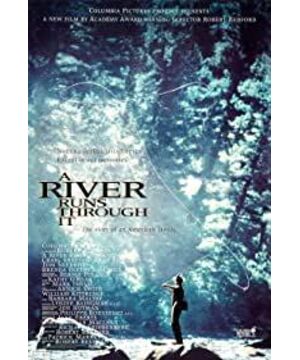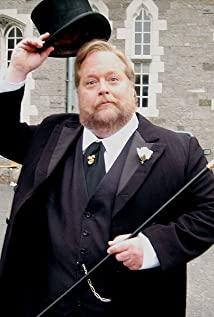Before the First World War, on the banks of the big river in Missoula, Montana, there lived little brothers Norman and Paul. Their father was a local priest and a master fly fishing expert. Under the nurturing of the river, they gradually grew up and gradually became two people with completely different personalities. The elder brother Norman was stable and reserved, while the younger brother Paul was wild and unruly. By this never-ending river, the two brothers experienced growth. Experienced love and life and death...
Although we are the only child generation, when we were young, we were always accompanied by some friends or relatives of the same age as us. Carefree, crazy and troubled together, running through the streets together, even if it is awkward, it will soon be reconciled. However, with the growth of age and the change of world affairs, the former playmates will become people of various personalities, and eventually everyone will drift apart and move towards different life trajectories. When watching this movie, the Norman and Paul brothers in the film always remind me of this question. The two grew up frantically by the big river together when they were children, but Norman grew up to be a steady and reserved professor, while Paul grew up For a wild and uninhibited prodigal son. For them, life is the big river that grows up with them. The elder brother is the tenacious stone in the river, and the younger brother is the trout who is always chasing prey in the river. The different personalities of the two eventually lead to completely different lives. trajectory.
There are two scenes in the film about the two brothers going fishing in the big river as adults: the first time, the older brother Norman fished strictly according to the method his father had always taught him, while the younger brother Paul used his own method to catch a bigger fish. The second time, the older brother Norman still followed his father's teachings, while the younger brother Paul went deep into the danger and was almost swept away by the rushing river, but he also caught the biggest fish the family had ever caught. This actually implies the different life trajectories of the two brothers. The elder brother grows steadily and ordinary step by step; the younger brother is bold and stubborn, dares to challenge all routines, and dies after blooming brilliantly.
One of the most classic lines in the film comes from the brothers' father, the elderly man who presided over his last service: "Those who are closest to us are usually the most unpredictable, but we are still We can love him, and we can love with all our hearts and souls that we don’t know.” This is the essence of the whole film. We don't really understand our brothers, parents, children or relatives and friends, but this does not prevent us from loving them. Just like the stone never understands the fish and the river never understands the stone, the bond between life and family will be We are forever connected, collide and embrace each other, and finally merge into the great river that flows forever.
This film is adapted from the autobiographical novel of the character's brother Norman Macaulay. Even today, if such an autobiographical novel has no ups and downs, it still faces great challenges if it is to be adapted into a film. It is difficult, but the director of the film, Robert Redford, used his amazing talent to make it a timeless classic about life and family. The ordinary but ordinary character story has become a classic after being matched with the magnificent river scenery, and the soundtrack composed of violin and Scottish bagpipes adds a majestic feeling to this classic, making it a legend. And the most shining in this legend is Brad Pitt, who was still tender and out of the water back then. His always shining eyes and youthful passion have added a few different romances and affection to this film.
View more about A River Runs Through It reviews











